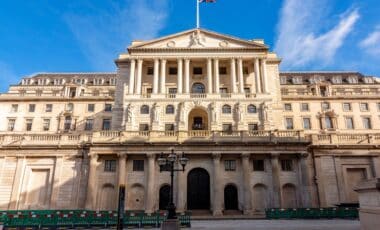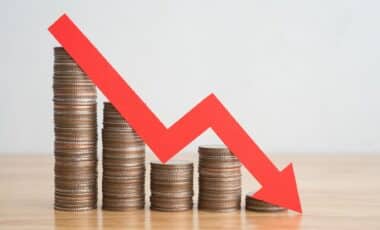Leading forecasts have revised their growth projections downward, raising new fears about UK’s economic recovery. Due to weak economic performance in the second half of 2024, the EY ITEM Club, a major economic forecaster, has lowered its projection of GDP growth for 2025 from 1.5% to 1%. The downgrading raises more questions about how strong the UK’s recovery is as companies get ready for rising taxes and wage costs.
The latest projections mark another setback for Chancellor Rachel Reeves, who has prioritised economic growth amid ongoing financial uncertainty. With GDP stagnation in late 2024 and ongoing global trade pressures, the government faces mounting challenges in restoring business confidence and driving sustained expansion. Analysts warn that while real wages may improve, businesses remain cautious, limiting the pace of economic recovery.
Economic Slowdown Raises Concerns Over UK Recovery
The UK economy is experiencing a prolonged period of weak growth, with key indicators showing minimal improvement. The EY ITEM Club’s downgrade follows an unexpectedly slow second half of 2024, with GDP barely moving—rising 0.1% in November after a 0.1% decline in October. The economy also flatlined in the third quarter, pointing to sustained stagnation rather than a decisive rebound.
This period of weak economic activity has raised concerns about the UK’s resilience amid global financial pressures. While some growth was recorded in 2023, the recent slowdown suggests that recovery remains fragile. Businesses are now preparing for higher corporate taxes and wage costs in April, adding further constraints to expansion. Despite some improvements in real wages, household spending remains under pressure, limiting domestic demand as a driver of growth.
Business Confidence Remains Mixed as Economic Pressures Persist
While some economic indicators suggest a gradual recovery, private sector confidence remains uneven. Anna Anthony, EY UK regional managing partner, highlighted the mixed outlook, noting that while consumer sentiment may improve with rising wages, businesses are facing continued financial pressures.
“Despite the subdued finish to 2024, there are signs that the UK economy could turn a corner and achieve stronger levels of growth this year,” Anthony explained. “While business investment is set to increase, tightening financial conditions and global trade uncertainty are expected to weigh on private sector confidence in the first half of this year.”
Although business investment is expected to rise, many companies remain cautious due to high borrowing costs and market volatility. Analysts warn that inflationary pressures, higher interest rates, and weak global trade demand could further slow growth. For Chancellor Reeves, the challenge will be to navigate these risks while supporting economic expansion, amid rising scrutiny over the government’s ability to deliver sustainable growth.









